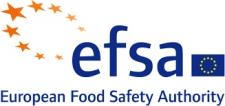 The European Food Safety Authority and the European Centers for Disease Control are jointly investigating an extensive outbreak of Salmonella Enteritidis (SE) infection, comprising more than 300 diagnosed cases in sixteen nations. From January through October 2023, 335 laboratory confirmations of SE sequence type 11 have occurred in three clusters.
The European Food Safety Authority and the European Centers for Disease Control are jointly investigating an extensive outbreak of Salmonella Enteritidis (SE) infection, comprising more than 300 diagnosed cases in sixteen nations. From January through October 2023, 335 laboratory confirmations of SE sequence type 11 have occurred in three clusters.
Nine E.U. member nations and the U.K. were affected in the first cluster with 66 patients principally in the U.K. and France. The second cluster involved 192 cases in twelve E.U. nations and the U.K. with consumers in the U.K. and France again predominantly affected.
 The third cluster comprised 77 patients in nine nations. Generally, the clusters affected a wide range of ages from toddlers to octogenarians but with the gender ratio approximating equality.
The third cluster comprised 77 patients in nine nations. Generally, the clusters affected a wide range of ages from toddlers to octogenarians but with the gender ratio approximating equality.
Interviews with patients disclosed consumption of chicken meat frequently stated as ‘kabobs’. This designation may be in error as it is more likely that shawarma was involved since spit-cooking with shaving of meat from a compressed mass frequently results in a temperature inadequate to destroy Salmonella. In addition to Salmonella Enteritidis other Salmonella serotypes were identified including Infantis, Virchow and Typhimurium. Investigations disclosed that raw chicken products as delivered from processing plants were contaminated and that outbreaks were not consistently associated with either food preparation or type of restaurant.
Since 2020, outbreaks of SE in both eggs and chicken have been ascribed to product emanating from Poland since this nation is a major exporter of poultry products to Western Europe. Deficiencies in detection and control of Salmonella infection through the entire chain of production have been documented and specific plants associated with outbreaks have been identified through trace-back investigations.